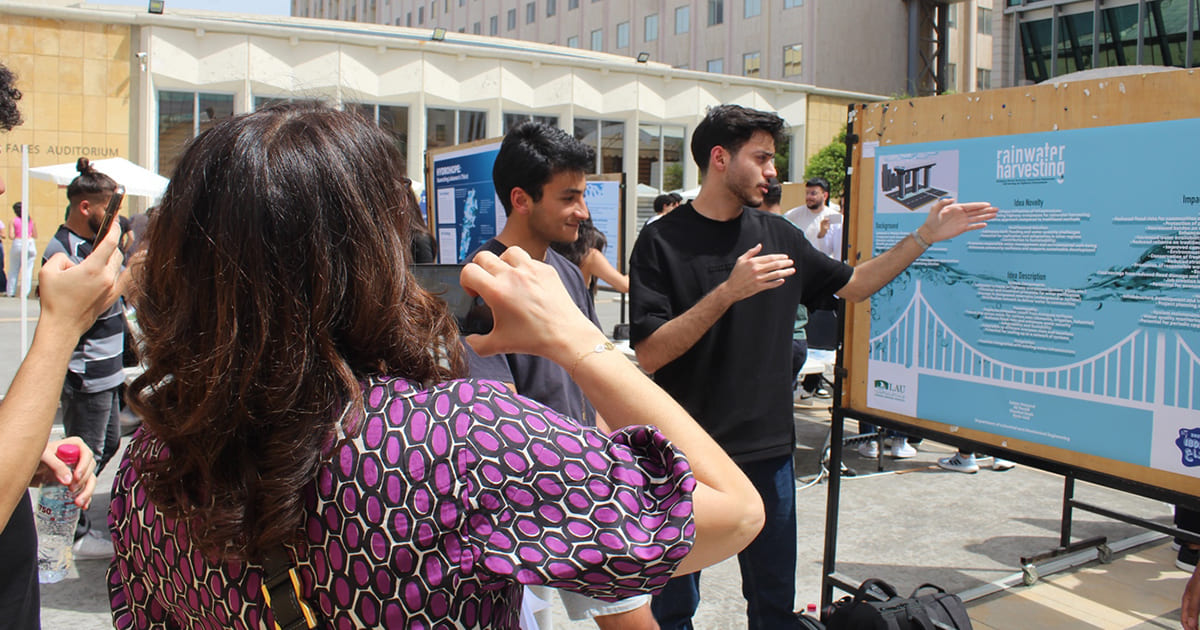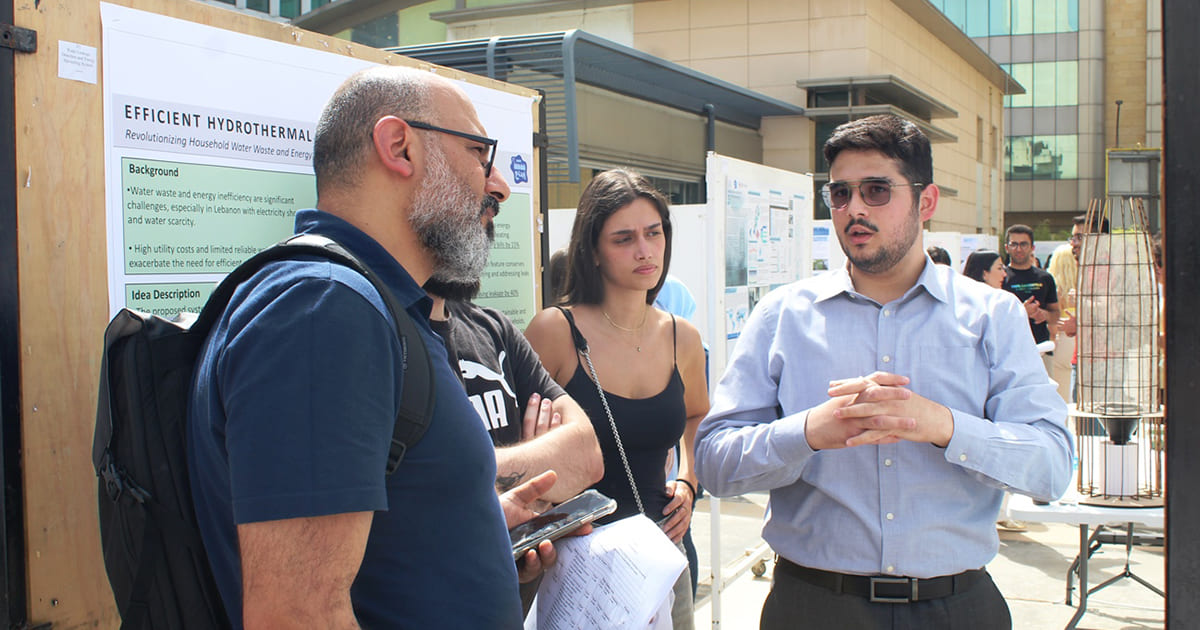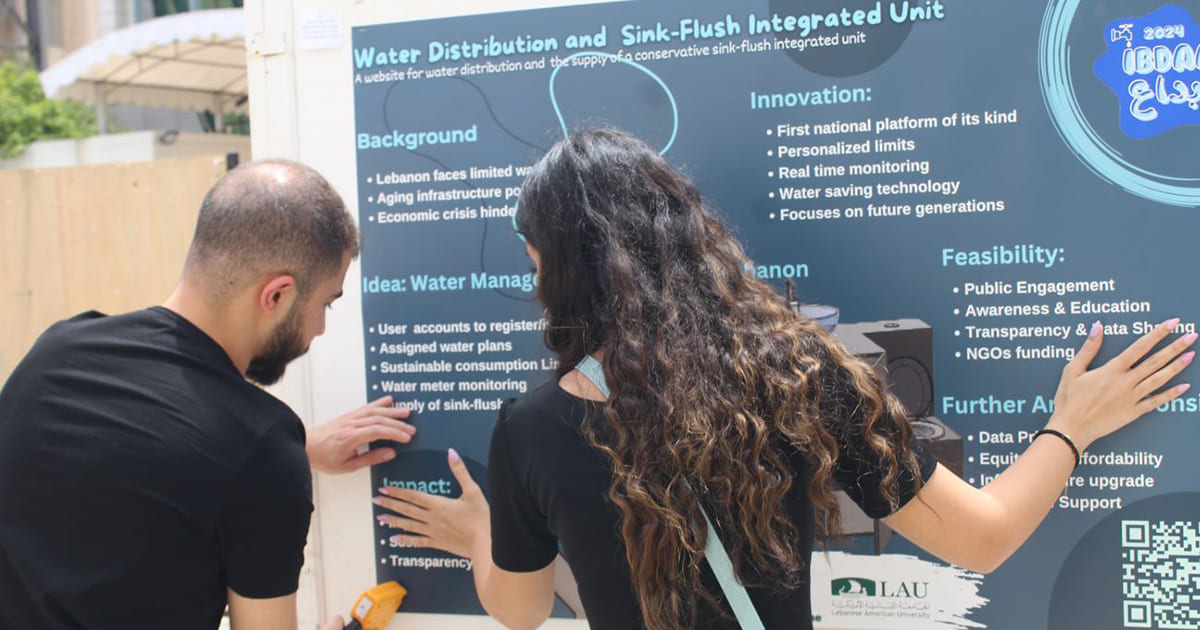Students Acknowledged for Their Entrepreneurial Spirit
Engineering students claim first and second prizes at IBDAA, an annual nationwide inter-university innovation competition that addresses current sustainability issues.
Out of the competition’s four multi-disciplinary tracks focused this year on the UN’s SDG6—access to safe water, sanitation and hygiene—LAU’s engineering students took the lead in the Product Development track with their innovative projects to solve contemporary engineering challenges.
The competition, organized by the AUB Nature Conservation Center, serves as a platform to rethink how academic learning can be transformed into practical innovations.
Under the guidance of Dr. Marc Haddad, associate professor at the School of Engineering, industrial and mechanical engineering students in nine hybrid teams from his Seminar on Contemporary Issues in INE and MEE course secured the first and second positions for their projects: a smart drinking water and storage system that purifies and monitors water affordably and a porous asphalt trench that reduces the risk of flooding while filtering stormwater for other uses, respectively.
“I commend our students for their outstanding achievement at IBDAA,” said Dr. Jimmy Issa, associate professor and chair of the Department of Industrial and Mechanical Engineering. “They showcased not only their innovative solutions but also their dedication to community outreach and sustainable solutions,” he added.
Cash prizes of $500 and $250 were awarded to the two winning teams: Cynthia Al Labaki, Jad Atallah, Elias Fadel, and Rita Zakaria in first place and Ali Awada, Mahdi Tarhini, Maria Saad, and Mohammad Basharouh in second place.
The experience engages students in active learning, broadens their exposure and motivates them to take on entrepreneurship initiatives, noted Dr. Haddad.
“It is an opportunity for them to take part in an entrepreneurial activity and learn from the different stages of their participation, from developing an innovative idea to tackle a contemporary engineering challenge, to presenting it professionally and engagingly which broadens their exposure through interaction with faculty jurors and students from other universities,” he said.
Regardless of whether they win an award or not, their participation provides them with valuable experience and inspires them to be innovative in addressing real-life issues, he added.
Indeed, Senior Industrial Engineering student Faten El Mawla, who was among the 26 participants, said that it was “through initiatives like these that we can delve into crucial topics and make significant progress.”
To prepare the students for the event and contribute to their domain knowledge, Dr. Mahmoud Wazne, associate professor and chair of the Civil Engineering Department, was invited to speak to the seminar class on current water management topics. Dr. Wazne had recently spearheaded and completed in collaboration with the Litani River Authority a three-year USAID-funded project by providing a sustainable solution to the pollution of the Litani River Basin.
This marked the students’ first participation in the IBDAA contest and the incorporation of competitive engagement into the course activities.


